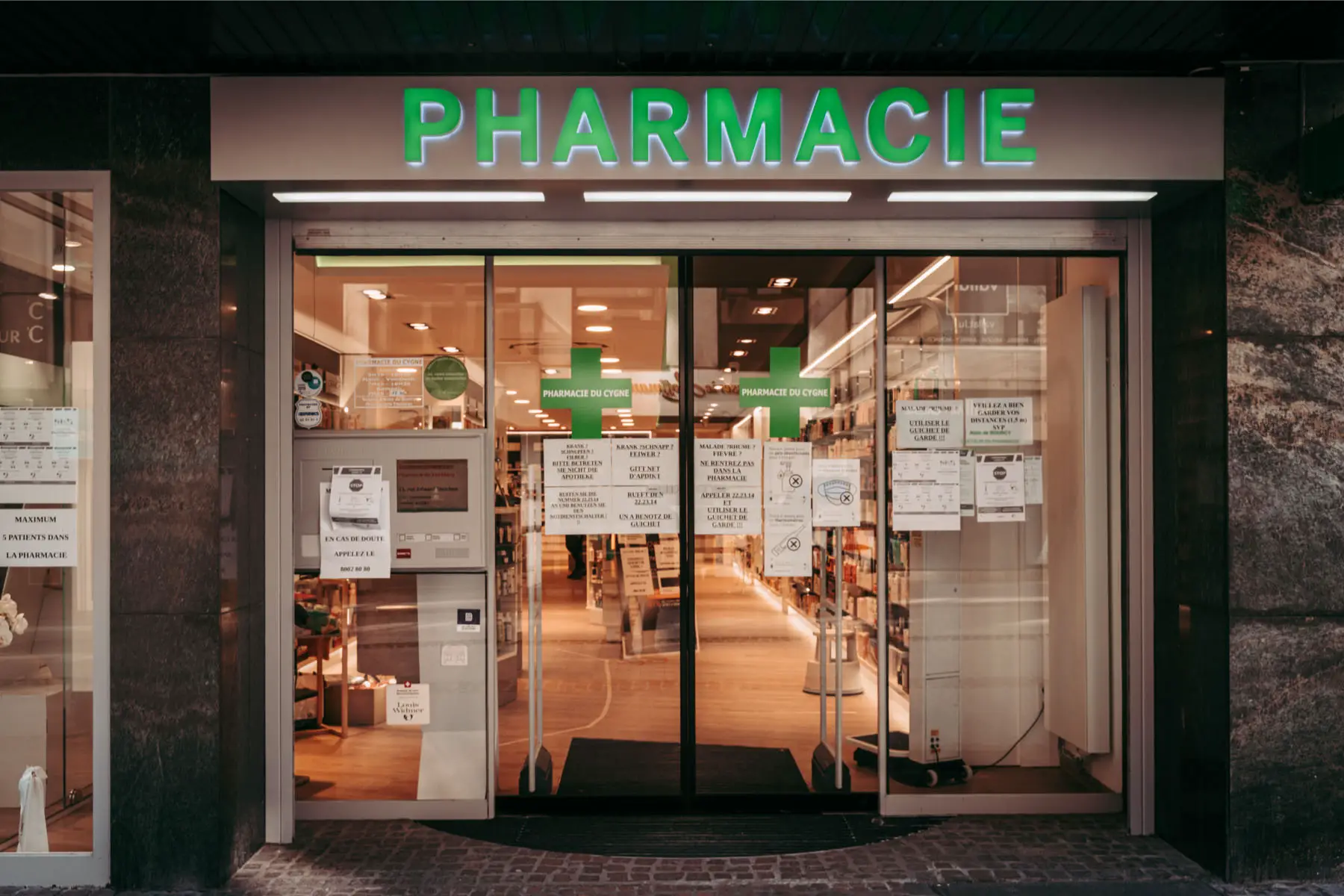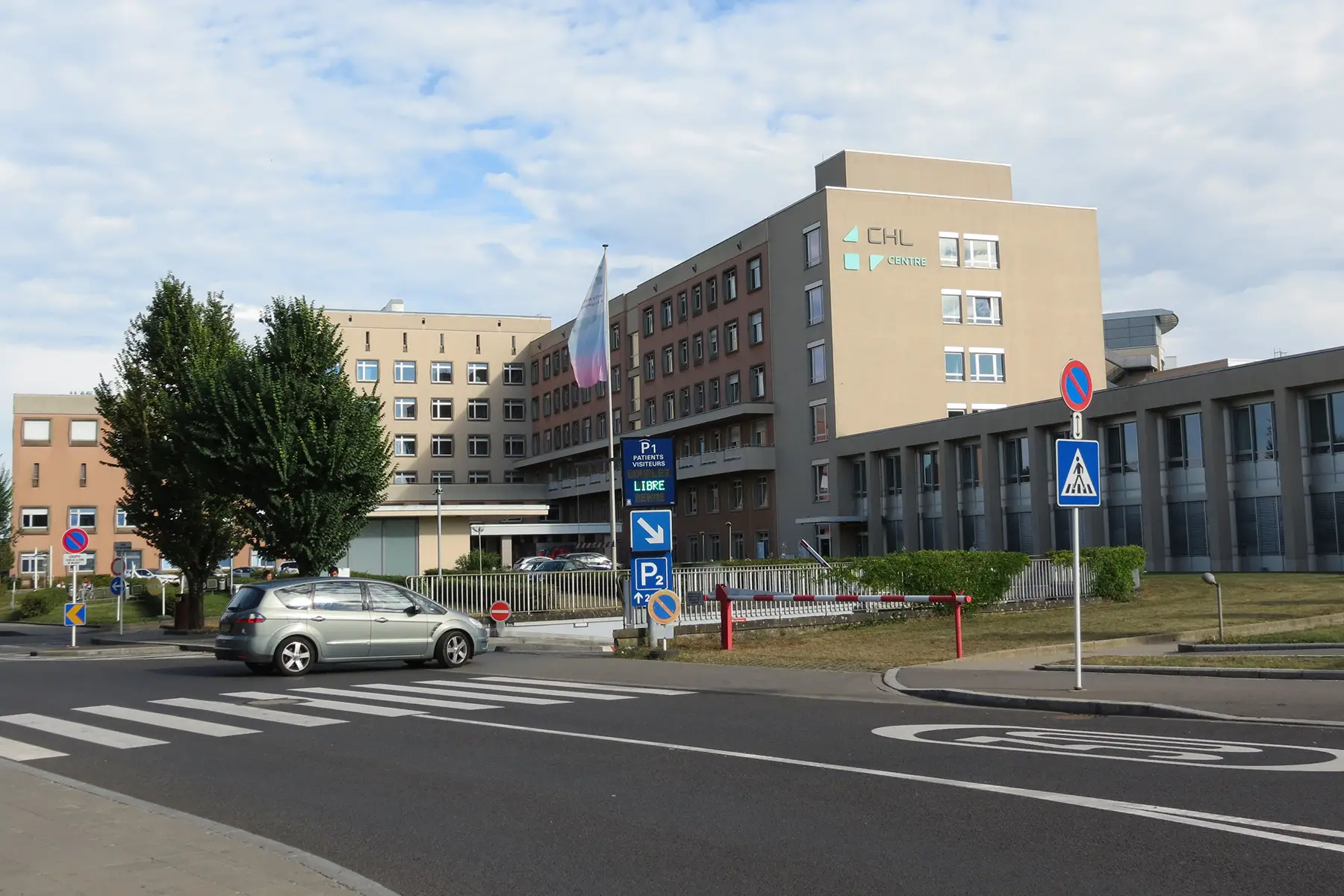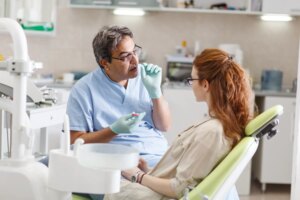Luxembourg offers high-quality healthcare for nearly all residents, including expats. Whether you need a family doctor or a specialist, the system is well-organized and shouldn’t cause you too much stress. From finding a GP to understanding medical costs and language barriers, we outline everything you need to know about seeing a doctor in Luxembourg.
Continue reading for the following information:
- Overview of doctors in Luxembourg
- Who can see a doctor in Luxembourg?
- How to find a doctor near me in Luxembourg?
- How to see a doctor in Luxembourg: step-by-step
- How much do doctor visits cost in Luxembourg?
- Overview of doctors’ services in Luxembourg
- How to complain about a doctor in Luxembourg
- Medical words in French, German, and Luxembourgish
- Useful resources
Cigna Global
Enjoy peace of mind while living in Luxembourg with Cigna Global’s long-term international health insurance plans (12+ months). Get tailored coverage, direct billing with many providers, complex case management, and global care on demand, with access to a network of 1.5+ million doctors, specialists, and therapists.
Overview of doctors in Luxembourg
Luxembourg has one of the best healthcare systems in Europe, covering nearly 99% of its residents, including expats. The system is funded through a combination of public and private health insurance, which ensures that everyone can access a broad range of medical services, including doctor visits (French: médecin, German: Arzt, Luxembourgish: Dokter) and emergency care.
According to the EC 2023 country health profile, Luxembourg has 3.0 doctors per 1,000 residents (2021). This is below the EU average of 4.1 doctors per 1,000 inhabitants. The low density is a result of the absence of available medical training; the country launched the first national bachelor’s degree in medical science in 2021. Until then, it was dependent on foreign-trained physicians.
It is unclear how many GPs there are in the country; there have been no official statistics since 2018, when the average was 0.89 GPs per 1,000 patients.

In Luxembourg, all doctors need a license from the Ministry of Health and Social Security (M3S) and register with the Medical College (Collège Médical).
Family doctors or GPs in Luxembourg
Family doctors or general practitioners (GPs – French: médecin traitant, German: Hausarzt, Luxembourgish: Hausdokter) are usually the first point of contact for any medical issues. They work either alone or in group practices (French: cabinet médical, German: Arztpraxis, Luxembourgish: Dokteschpraxis), and you are free to choose whichever doctor you prefer.
Standard opening hours are from 08:00–08:30 to 17:00–18:00, Monday to Friday, though this can vary depending on the doctor. Most health centers are closed on weekends and public holidays.
GPs deal with routine medical issues, conduct basic tests, and coordinate follow-up treatments. They also hold and maintain your medical records (Dossier de Soins Partagé – DSP) and can refer you to other specialists and treatment centers if need be.
Medical specialists in Luxembourg
If you need more specific care, the next step is usually a medical specialist (French: spécialiste, German: Facharzt, Luxembourgish: Spezialist). From dermatologists to neurologists, Luxembourg’s network of specialized doctors is wide-ranging and easy to access, even for newcomers.
Medical specialists usually work in hospitals, private clinics, or group practices. Opening hours can vary significantly depending on the doctor. Public doctors offer consultations between 08:00 and 17:00, Monday to Friday, whereas private physicians typically work from 08:00 to 18:00, with an hour in between for lunch.
You typically don’t need a GP referral to see a specialist, though it could help you and them identify your medical situation more easily.
Who can see a doctor in Luxembourg?
Everyone can access medical care to some degree or another, including asylum seekers, refugees, and tourists. However, for non-urgent medical help, you have to pay large out-of-pocket costs or have health insurance coverage – either public, private, or both.

Our article on health insurance in Luxembourg covers the topic (and costs!) in more detail, but basically, there are both public and private doctors. While they both offer the same levels of quality care, the difference is in the insurance coverage and availability.
While consultations with public doctors are heavily subsidized, they often have longer waiting times and more rushed exams. Private physicians, on the other hand, cost more but have more flexible appointment scheduling and longer, personalized visits.
How to find a doctor near me in Luxembourg?
If you are in a life-threatening situation, go to the nearest hospital emergency room (French: urgences, German: Notaufnahme, Luxembourgish: Noutfall Sall). You can also call 112, which is the free pan-European number for any type of emergency.
If your situation is less immediate (and more you looking for information), you can find doctors and GPs listed on the website of the Medical College. If you’re uncomfortable speaking French, German, or Luxembourgish, you can also find English-speaking doctors on websites like Doctena and Editus. And to see how your doctor in Luxembourg performs, be sure to check ReviewEuro.
For medical issues outside regular opening hours, you can also contact the out-of-hours medical service (French: Maisons Médicales de garde, German: Ärztehäuser im Bereitschaftsdienst, Luxembourgish: Medezinesch Zentren op Opruff) in Luxembourg City, Belval, or Ettelbruck. These are open from 20:00 to 00:00 on weekdays and 08:00 to 00:00 on weekends. After midnight, you will need to call 112.
How to see a doctor in Luxembourg: step-by-step
Step 1: Register with your preferred doctor
In Luxembourg, residents are free to choose any doctor they want. You can switch physicians freely, and it’s not necessary to register beforehand. However, most people choose to stick with one GP for practicality and familiarity.

Step 2: Book a doctor’s appointment
Although some GPs accept walk-in patients, most require you to schedule an appointment in advance. You can do so with a quick phone call to the individual medical center or using an online service like Doctena. Specialists don’t do walk-ins unless it’s for urgent medical situations.
Waiting times for GP appointments are generally not too long. In fact, you can often get a same-day appointment. If you visit a walk-in, you may have to wait a few hours. Many doctors in Luxembourg carry out home visits, although this may only be between certain hours. If you don’t show up for an appointment or cancel with less than 24 hours’ notice, your doctor may charge you for the appointment.
Step 3: Visit the health center
When you go to the scheduled appointment, make sure to bring your social security card and ID. This card proves that you’re insured, and it allows your doctor to upload any prescriptions for medications, should you need them. Also bring your wallet to pay for the copayment.
Doctors’ appointments in Luxembourg do not usually last too long. Although many physicians speak good English, they typically aren’t very chatty and can be quite reserved.
How much do doctor visits cost in Luxembourg?
Without proper health insurance, a consultation with a public doctor or GP in Luxembourg costs around €60, depending on the location and services provided. You may also face additional charges for lab work, imaging, and prescriptions. Visits to specialists typically cost €50–100, also depending on the services provided.
Public health coverage includes all essential treatments, such as doctor visits and specialist care. Some services, like consultations and prescription medications, require a copayment. For example, you can expect to pay 12% for doctors’ visits and 20–60% for most medicines.
Of course, when you visit a private doctor, the costs may be higher.

Do I need health insurance in Luxembourg?
Yes. Our article on health insurance in Luxembourg explains everything in full detail, but as a quick summary:
- Health insurance is mandatory for all residents
- Public insurance has a three-month coverage gap if you register voluntarily
- Statutory insurance covers most essential treatment, but not all. Patients will need to pay large out-of-pocket costs or take out private (top-up) insurance to cover it for them.
There are many private health insurers in Luxembourg, and it’s worth shopping around to find the best deals. Aside from the home-grown health insurance funds, there are also international insurers who cater specifically to expats. These are ideal for residents who want to avoid the coverage gap, travel outside the country a lot, or prefer expat-focused care:
Overview of doctors’ services in Luxembourg
Prescription medications
If necessary, the doctor may prescribe you medication, which you can pick up from any pharmacy (French: pharmacie, German: Apotheke, Luxembourgish: Apdikt) in Luxembourg. You typically need to pay 20–60% of the costs yourself, depending on the medication.
To find your nearest pharmacy, you can use any search engine or check the Pharmacie.lu website. This site also has a search tool for finding out-of-hours emergency pharmacies (French: pharmacies de garde, German: Apotheken auf Abruf, Luxembourgish: Apdikten op Uruff).

Medical tests in Luxembourg
While doctors in Luxembourg can perform several medical tests on location, some testing needs to be done by a local clinic. In case of the latter, you will be given a referral. If your doctor doesn’t feel the medical test is necessary, you can also contact a test center yourself (seeing you don’t need a referral). However, be sure to ask your insurance provider beforehand for its coverage.
Employers routinely send newly recruited staff in for a medical check to make sure they are medically fit for the job. The employer will cover the costs of this through their occupational health insurance plan.
How to complain about a doctor in Luxembourg
Luxembourg has several ways to file an official complaint about a doctor or any other healthcare malfeasance. For example, if you feel your patient rights are not being respected, you can contact the National Health Mediation Service (Médiateur Santé) for free. The health ombudsman will try to mediate between you and the health provider and inform you of any possible next steps.
For official complaints about the public health fund, you can contact the Social Security Arbitration Tribunal (Conseil Arbitral de la Sécurité Sociale – CASS). You must do so in writing within 40 days of the thing you’re complaining about.
All investigative proceedings are conducted in French, German, or Luxembourgish.
Medical words in French, German, and Luxembourgish
Most doctors in Luxembourg can communicate in English. However, it is a good idea to have a phrasebook or a translator app on your phone in case you need to explain more complicated health issues.
You’ll also want to remember some of these medical words in French, German, and Luxembourgish:
| English | French | German | Luxembourgish |
| general practitioner | médecin de famille | Hausarzt | Hausdokter |
| doctor’s office | cabinet médical | Praxis | Dokteschpraxis |
| appointment | rendez-vous | Termin | Rendez-vous |
| pain | douleur | Schmerz | Schmerz or Wéi (colloquial) |
| headache | mal à la tête | Kopfschmerzen | Kappwéi |
| stomach ache | mal au ventre | Bauchschmerzen | Bauchwéi |
| back pain | mal de dos | Ruckenschmerzen | Réckwéi |
| fever | fièvre | Fieber | Féiwer |
| cough | toux | Husten | Houscht |
| prescription | ordonnance | Rezept | Rezept |
| pain killer | analgésique | Schmerzmittel | Pëll géint de Schmerz |
Useful resources
- d’Gesondheetskeess (CNS) – official website of Luxembourg’s Public Health Service
- Sante Secu – government e-portal with news and information about Luxembourg’s healthcare
- e-Santé – government e-portal with healthcare information and access to your medical records








